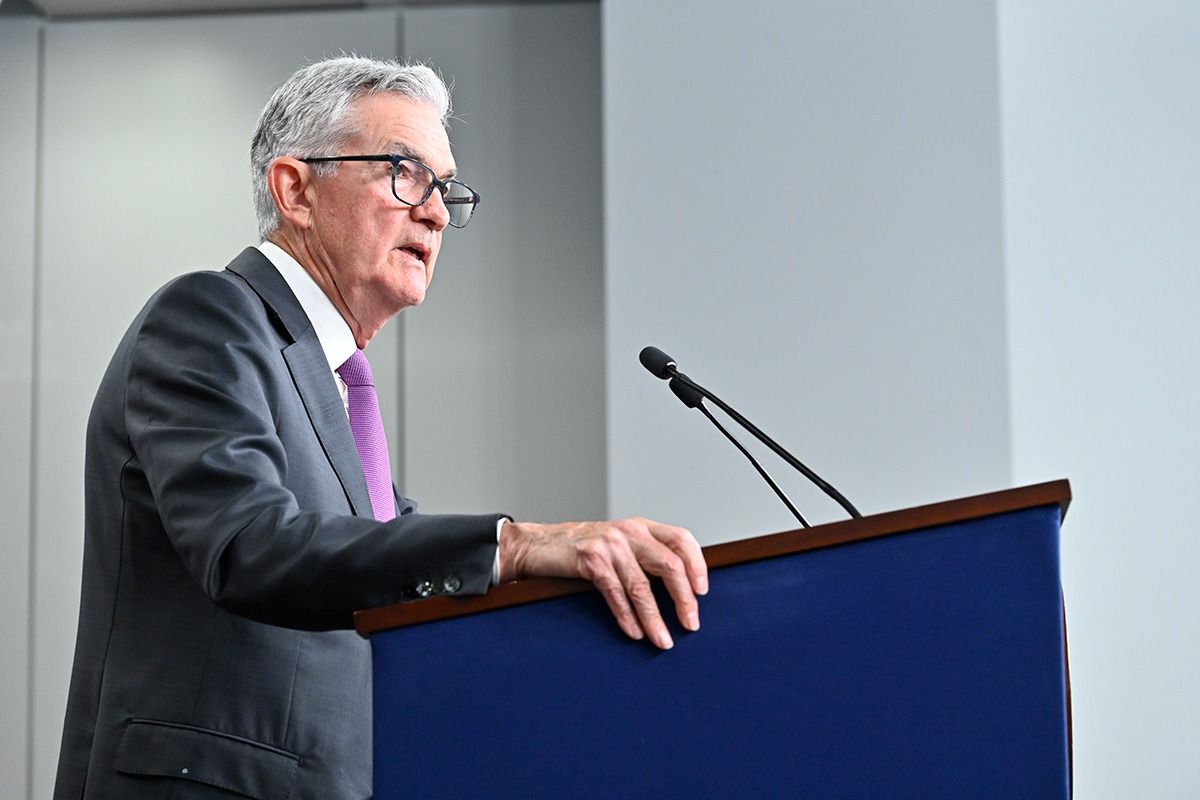May Fed Meeting: Did Powell Have No Clue? Amid Recession Fears, Data Paints a Different Picture
- Markets in 2026: Will gold, Bitcoin, and the U.S. dollar make history again? — These are how leading institutions think
- US Q4 Earnings Season Set to Begin: Can US December CPI Data Bolster Rate Cut Case? [Weekly Preview]
- Gold Price Forectast: XAU/USD rises above $4,600 on US rate cut expectations, Fed uncertainty
- Trump’s Tariff Ruling Lands Today: Market to Rise or Fall — The Decision Will Tell
- Gold Price Forecast: XAU/USD declines to near $4,450 as safe-haven demand eases
- US Dollar Index steadies above 99.00 ahead of Retail Sales, PPI data

The Federal Reserve’s May policy meeting concluded as expected with no rate cuts, but the post-meeting statement introduced new language flagging rising unemployment and increased risks to inflation. Against the backdrop of ongoing uncertainty in Trump’s tariff policies, Federal Reserve Chair Jerome Powell continued his “wait-and-see” stance—leaving economists puzzled about the economic data and the outlook ahead.
On Wednesday, May 7, 2025, the Fed announced its decision to hold the federal funds rate steady for the third consecutive meeting. During the press conference that followed, Powell emphasized the “high degree of uncertainty” surrounding the economic outlook, noting that inflationary effects could be either temporary or persistent. He reiterated that the Fed is not in a hurry to adjust rates and will remain patient and watchful.
Faced with the unpredictability of U.S. trade policy, Powell candidly admitted that the Fed “doesn’t know” how long it will take to fully understand the implications of recent developments. Rising upside risks to both inflation and unemployment—hinting at potential stagflation—have placed policymakers in a difficult position: should they cut rates to support employment or maintain restrictive rates to contain price pressures?
Economists at BNP Paribas note that unless there is a decisive improvement in economic data, the Federal Open Market Committee (FOMC) appears willing to keep interest rates unchanged indefinitely.
Amid growing "recession talk" on Wall Street—especially since Trump’s return to power—and corporate warnings about the impact of new tariffs on business performance, the so-called “hard data” still suggests a relatively resilient economy: job growth continues, unemployment remains stable, and inflation appears to be contained—at least for now.
Powell acknowledged that businesses are delaying investment decisions and households are postponing spending, but stressed that the Fed cannot act preemptively because, in reality, officials don’t yet know how to interpret these signals—until more data becomes available.
Still, Powell argued that the feared tariff-related economic shocks have not yet materialized, and inflation remains range-bound at relatively low levels.
Barclays economists echo this sentiment, stating that right now, there’s little solid ground to stand on—forcing analysts to rely on anecdotal evidence and unconventional indicators.
Citi adds that when economic volatility is high, people must wait for data to catch up with reality. After all, it takes time for changes in consumer behavior to show up in the numbers, and even longer—often a month or more—for those impacts to appear in official reports.
Read more
* The content presented above, whether from a third party or not, is considered as general advice only. This article should not be construed as containing investment advice, investment recommendations, an offer of or solicitation for any transactions in financial instruments.




